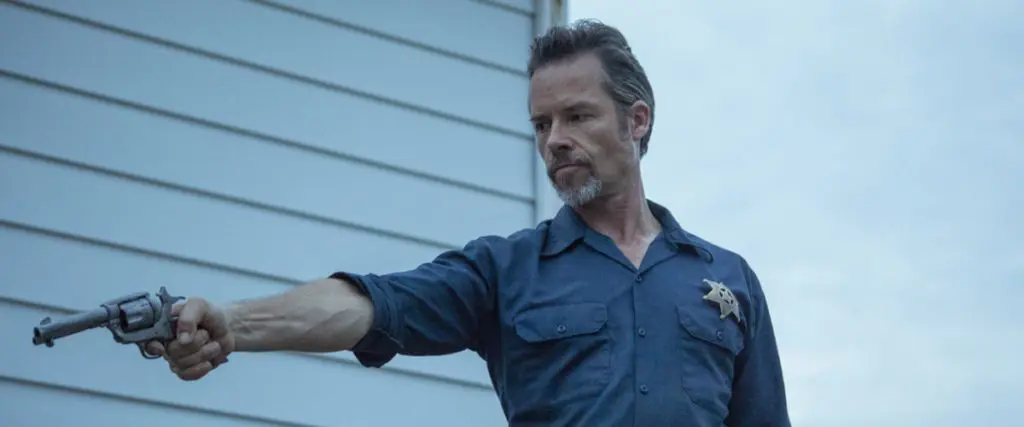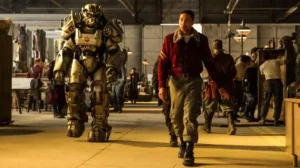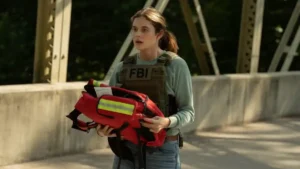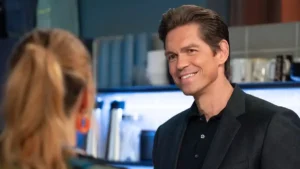Summary
Disturbing the Peace is a shockingly dull Guy Pearce vehicle about a small-town standoff between a tortured lawman and an invading biker gang. Ride on past this one.
Guy Pearce, seemingly in desperate need of a better way to occupy his time, stars in York Alec Shackleton’s small-town actioner Disturbing the Peace as a local lawman who has sworn off firearms after accidentally shooting his partner during a hostage situation. This film, which is indescribably dull, opens with the event — presented in typically desaturated flashback mode, naturally — but otherwise picks up a decade later, with Pearce’s Marshall Jim Dillon presiding over the small town of Horse Cave, where he broods and makes googly eyes at high-kicking cafe waitress Catie (Kelly Greyson).
This relative peace is disturbed by the arrival of a maniac biker gang led by Diablo (Devon Sawa), so-called by his friends and his enemies alike, but which is Dillon going to be? The answer should be obvious, but this torpid film takes a good chunk of its lean running time to finalize a decision. Narrowly escaping a standoff thanks to a trigger-happy local, Dillon is able to flee and hatch a revenge plot that takes so long to kick into gear I thought it never would. When the time finally came, the occasional inclusion of a grisly killing is small consolation for enduring so much of screenwriter Chuck Hustmyre’s diabolical dialogue.
Disturbing the Peace has such a loose grasp of pacing that the simple one-versus-all pleasure of such flicks is lost on agonizingly lengthy build-ups to weak payoffs. Since there’s no edge to any of the action, it isn’t enough on its own to prop up a nebulous plot that I’m not entirely sure I understood; Diablo is certainly very angry with the town and its inhabitants, and his plan involves an armored truck loaded with dough, but how it all really comes together was lost on me. Perhaps the characters being such two-dimensional archetypes caused me to switch off completely at some key point or another, but I don’t suppose I’ll ever really care enough to find out.
Guy Pearce is enough of a talent to imbue Dillon with a principled demeanor that remains watchable for a while, but the played-out trope of gunslingers disavowing their tools is so see-through that the moment of reconsideration it’s clearly building to is reached with an exasperated “Finally!” from the audience. So, too, is the ending — at least in my case.




